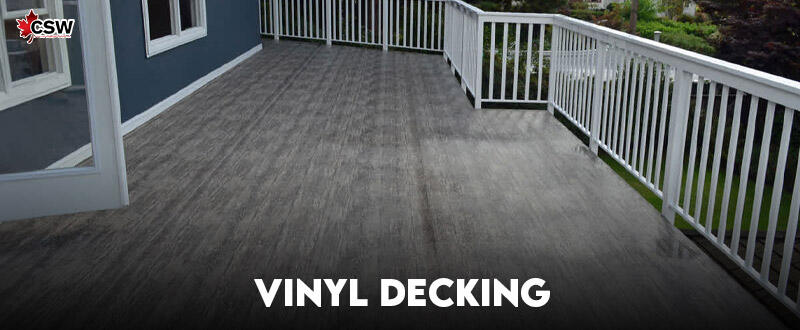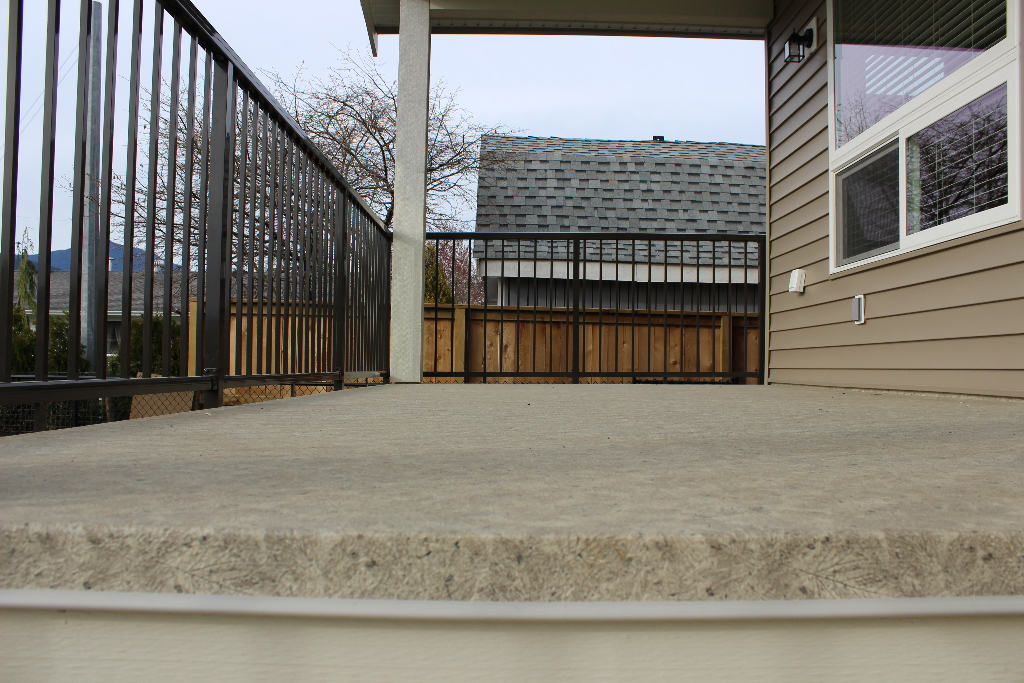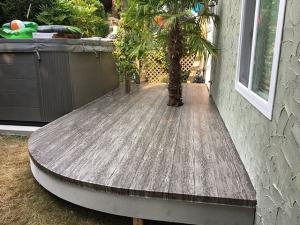


Vinyl Decking also called PVC decking or vinyl deck membrane, is becoming increasingly popular among residential, commercial, & industrial property owners.
Vinyl Decking, also called PVC decking or vinyl deck membrane, is becoming increasingly popular among residential, commercial, and industrial property owners, due to its durability, reliability, and affordability. It is designed to resist Canada’s harsh weather freeze-thaw cycles, heavy snow, ice, and UV exposure. Vinyl decking offers a practical, low-maintenance alternative to traditional materials.
As compared to wood or standard composites, vinyl decking delivers major advantages: it resists moisture, eliminates the need for staining or sealing, and holds up beautifully over time. In Canada, suppliers like CAN Supply Wholesale promote vinyl decking as “built for Canadian conditions,” positioning it as a worry-free choice for homeowners seeking performance and longevity.
One of vinyl decking’s strongest selling points is how it handles moisture, rot, and pests. Unlike wood, which can warp, splinter, or rot over time, vinyl decking is impervious to moisture. It won’t absorb water, so mold, mildew, and wood-rotting fungi are much less of a concern.
In Canada’s climate with rain, snow, and temperature fluctuations, that resistance is a huge advantage. Vinyl decking maintains structural integrity through freeze-thaw cycles rather than expanding and contracting like wood. Some suppliers (including CAN Supply) advertise that their vinyl decking is built to withstand “tough weather conditions in Canada” and does not peel, crack, or require repainting.
Plus, high-quality vinyl decking often comes with UV resistance built into the material or coating, helping it resist fading or color loss even after years under strong sunlight. This keeps your deck looking fresh longer.

A major reason homeowners shift to vinyl is how little upkeep it demands. With wood, you’re usually painting, staining, sealing, cleaning, or replacing boards over time. Vinyl dramatically cuts down on that work.
Visibly and practically:
It’s not enough for a deck material to be durable — it also must be safe and comfortable to use, especially when wet or icy.
All these elements help make vinyl decking not just durable, but usable and comfortable year-round in Canada.
Vinyl decking today isn’t just “flat plastic boards.” It has evolved to offer many design possibilities.
Though vinyl decking can carry a higher initial cost compared to basic wood boards, its life cycle economics often make it a smarter investment.
Beyond durability and aesthetics, vinyl decking brings additional practical and environmental perks.
While vinyl is synthetic, its durability and low-impact maintenance often make it a responsible option when compared to materials requiring heavy treatment or frequent replacement.

For balance, here are a few caveats to keep in mind — not to scare you off, but to help you choose wisely.
To bring theory into practice, CAN Supply Wholesale (a Canadian supplier) is a good real-world example of how vinyl decking can be positioned for the Canadian market.
If you’re in Canada and evaluating vinyl decking, referencing a supplier like CAN Supply helps you see how these benefits are marketed locally and gives you questions to ask (warranty, material specs, installation support).

Vinyl decking is an ideal choice for Canada’s tough climate due to its durability, low maintenance, safety, and design flexibility. It effectively avoids problems such as rot, splintering, and weather-related damage, allowing homeowners to enjoy their outdoor areas without the burden of constant upkeep. When considering a deck upgrade, it’s essential to evaluate the quality of the product, warranty details, slip resistance, and supplier support for Canadian climate conditions. Suppliers like CAN Supply Wholesale provide regionally tailored systems that enhance vinyl decking’s suitability for local environments.
© 2024 Crivva - Business Promotion. All rights reserved.